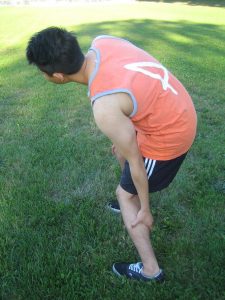Intermittent claudication is defined as an aching discomfort in the legs while walking or exercise that subsides while at rest. The pain can affect the hip, calf, thigh, buttock or foot arch.
Generally, this form of pain manifests once the arteries supplying blood to the legs are blocked or constricted. Remember that it is an initial sign of peripheral arterial disease (PAD).
What are the signs?
The indications of intermittent claudication range from minor to severe. The condition can be described as:
- Cramping
- Aching
- Numbness
- Heaviness
The indications of intermittent claudication range from minor to severe. - Weakness
- Fatigue
The pain might be serious enough to disrupt with walking or exercise.
What are the causes?
It is important to note that intermittent claudication is a usual initial sign of PAD. It is due to the blockage of the arteries supplying blood to the legs.
Other likely causes might involve the bones, muscles or nerves such as:
- Arthritis of the knee, hip or ankle
- Lumbar spinal stenosis
- Peripheral neuropathy linked with diabetes
- Nerve root compression
- Muscle strain
- Chronic exertional compartment syndrome
- Baker’s cyst
- Changes in the heel height of footwear
- Fibromuscular dysplasia
- Deep venous thrombosis
Management of intermittent claudication
The treatment is based on the underlying cause. If the cause is PAD, the initial step is to modify the risk factors such as:
- Cessation of smoking tobacco products
- Proper control of blood pressure and lipid levels
- Start a supervised exercise regimen
- Eat a healthy, balanced diet
The objective of treatment is to lower the risk for heart attack which is linked with PAD.
The doctor might prescribe medications to lower the blood pressure and lipid levels. Drugs are also given to improve the flow of blood to the legs.

